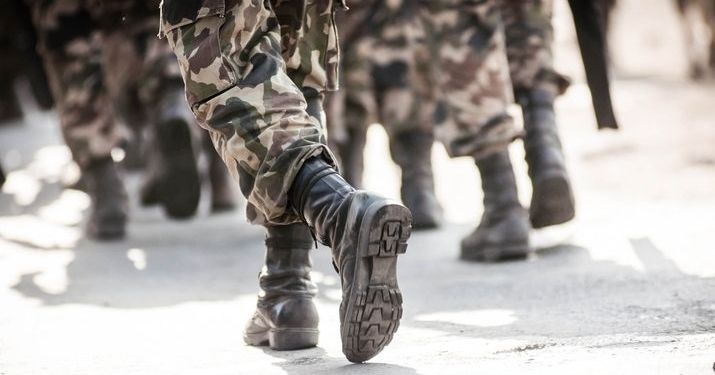From Earning Stripes to Earning a Master’s Degree
Last Updated December 19, 2022

Today, many servicemembers are making the transition back to civilian life or are preparing to do so in the near future. Despite concerns about this challenging transition, veteran servicemembers are often better prepared for the rigors of a new job as they are accustomed to following a routine, preparing for the unexpected, and taking and giving orders.
To expand their knowledge and hone their professional skills, some servicemembers are taking an additional step to increase their marketability back home by earning a master’s degree.
Among Americans ages 25 and older, just 9.3% hold a master’s degree, according to a 2017 Census Bureau survey. So, possessing a graduate degree, especially when combined with military experience, could set a job candidate apart. Historically, the unemployment rate for individuals with advanced degrees is significantly lower than the national average, while their earnings are significantly higher.
Not only can attaining a master’s degree potentially boost future earnings as a civilian, but it may also benefit active military personnel looking to rise through the officer ranks. A 2017 report by Pew Research found that military officers have higher levels of educational attainment compared to enlisted personnel and U.S. adults. 42% of DOD active-duty officers hold an advanced degree, and they are four times as likely as average adults aged 18 to 44 to complete a postgraduate degree.
Service Can Mean Saving on a Master’s Degree
Of course, the cost can be a potential roadblock on the path to earning a graduate degree. However, tuition assistance available to servicemembers through the Post 9/11 GI Bill® and other government programs can help alleviate costs and may even be contributing to the growth among veterans who are pursuing advanced degrees. According to a 2016 report from the National Center for Education Statistics (NCES), the use of veterans’ education benefits by military students has increased, along with the average amounts awarded to those recipients.
The Post-9/11 GI Bill, enacted in 2009, significantly expanded the education benefits for active service members and veterans over the previous GI Bill. Information and eligibility requirements can be found at https://www.benefits.va.gov.
Be All That You Can Be with Service Plus a Degree
In choosing a field of study for a master’s degree, some servicemembers may make use of skills gained in the military. For example, experience in recruiting may translate to a career path in sales and marketing. Other servicemembers, meanwhile, may find their leadership and strategic planning abilities best suit them for a master’s degree in management, strategy and leadership that can serve them well in human resources management or organizational leadership.
From pure size and scope to the life-and-death difference “mission-critical” supplies make during combat, the U.S. military logistics, and supply chain have no equal comparison in the commercial world. For servicemembers who have an intimate working knowledge of this complex and specialized supply chain, this can be an invaluable experience. Pairing military experience with the credential of a master’s degree in supply chain management can create an advantage when pursuing a supply chain career within a stateside or global company.
Online and Accessible from Wherever You Serve
For those servicemembers and veterans seeking to further their education while juggling work, family or military duties, earning a master’s degree online may be an excellent option. According to the NCES report, both undergraduate and graduate military students participated in online education more than their nonmilitary counterparts.
Online learning typically offers greater flexibility in terms of where and when coursework is done (after all, deployment schedules and traditional semester schedules rarely align) and provides cost-saving opportunities by cutting down on commuting, parking fees and other expenses associated with attending a traditional campus. Plus, most online students complete their degree requirements in less time than on-campus students, which can mean additional financial savings.
In selecting a program, choosing to study through a school with a solid reputation for supporting military and veteran students, whether they be on campus or online, can make all the difference for successfully completing the master’s degree.
Combined with military experience, a master’s degree may open many doors for veteran servicemembers making the transition to a civilian workplace or looking to move up the officer ranks.
GI Bill® is a registered trademark of the U.S. Department of Veterans Affairs (VA). More information about education benefits offered by VA is available at the official U.S. government website at www.benefits.va.gov/gibill.

